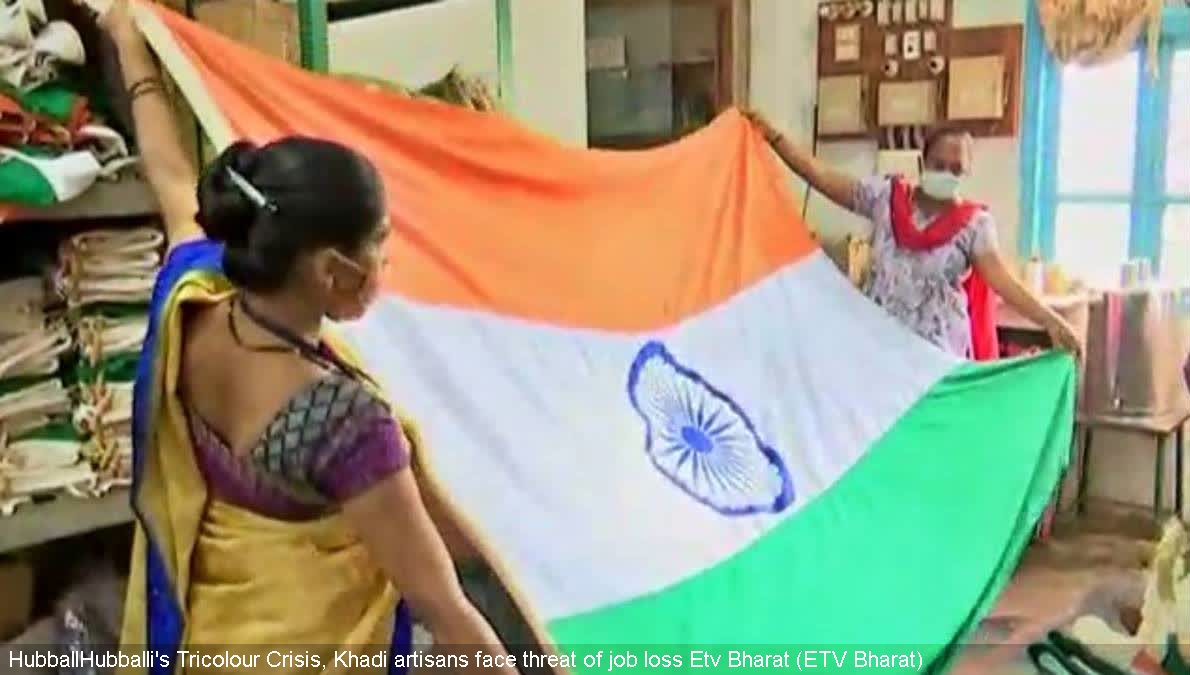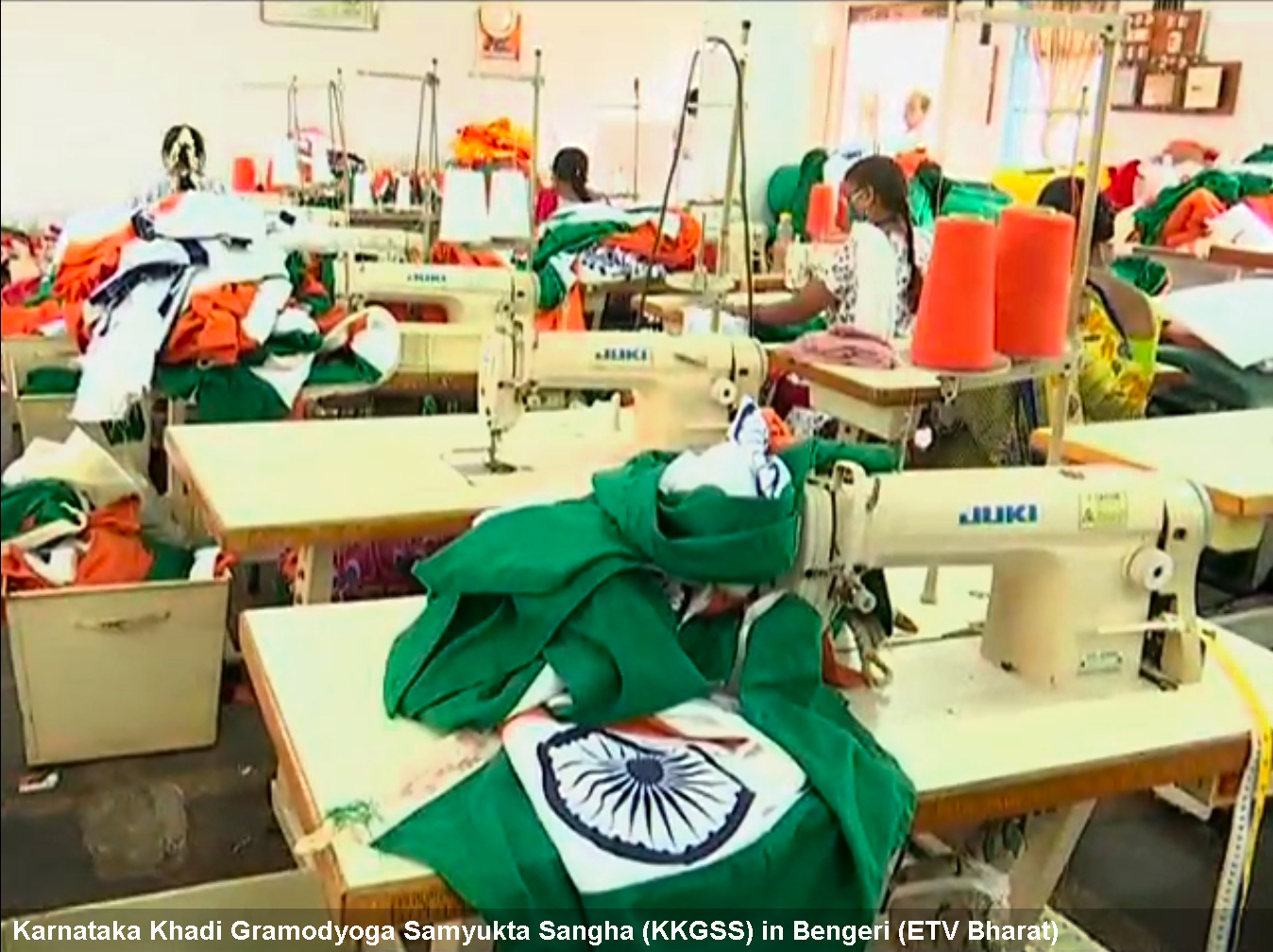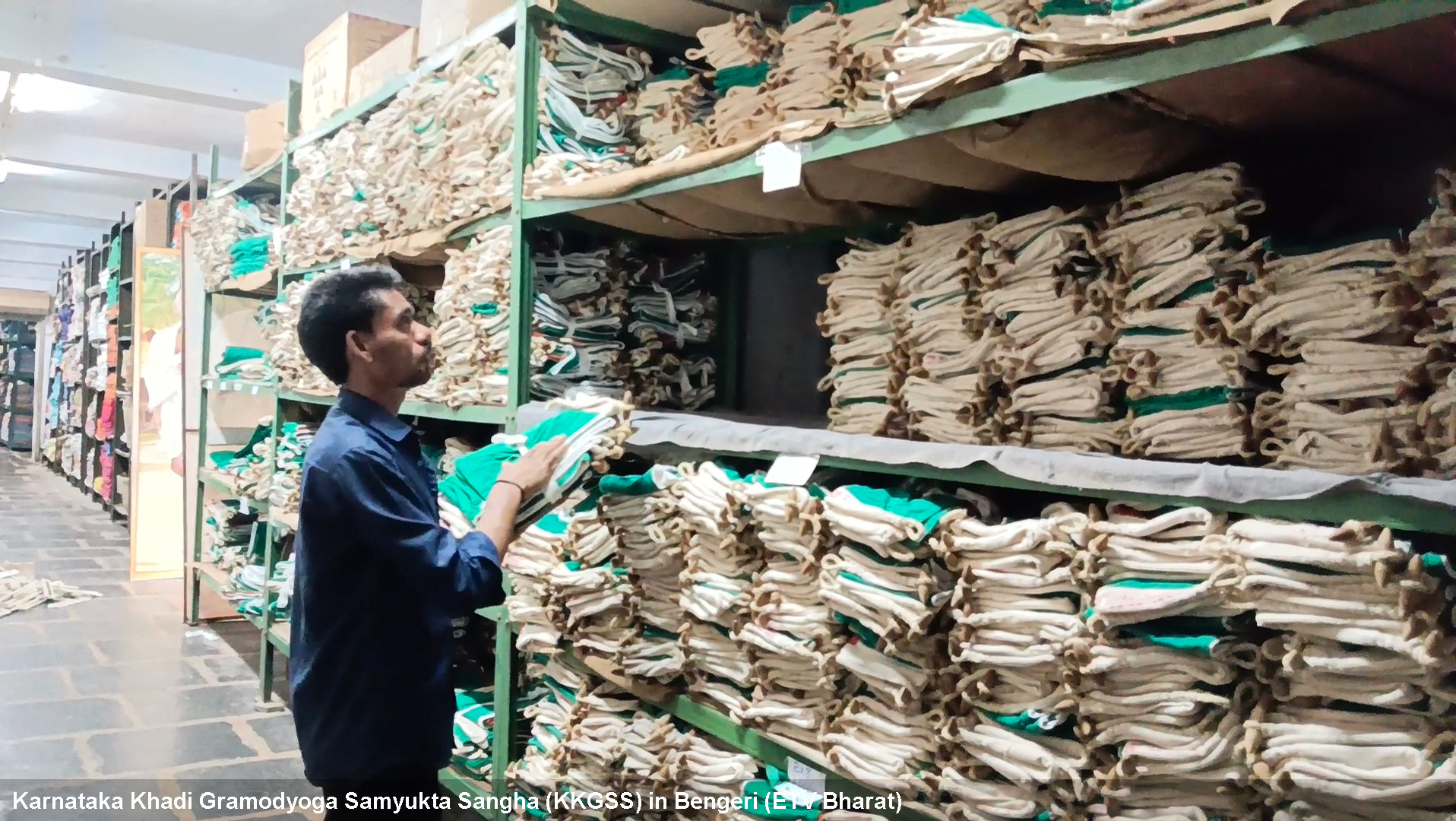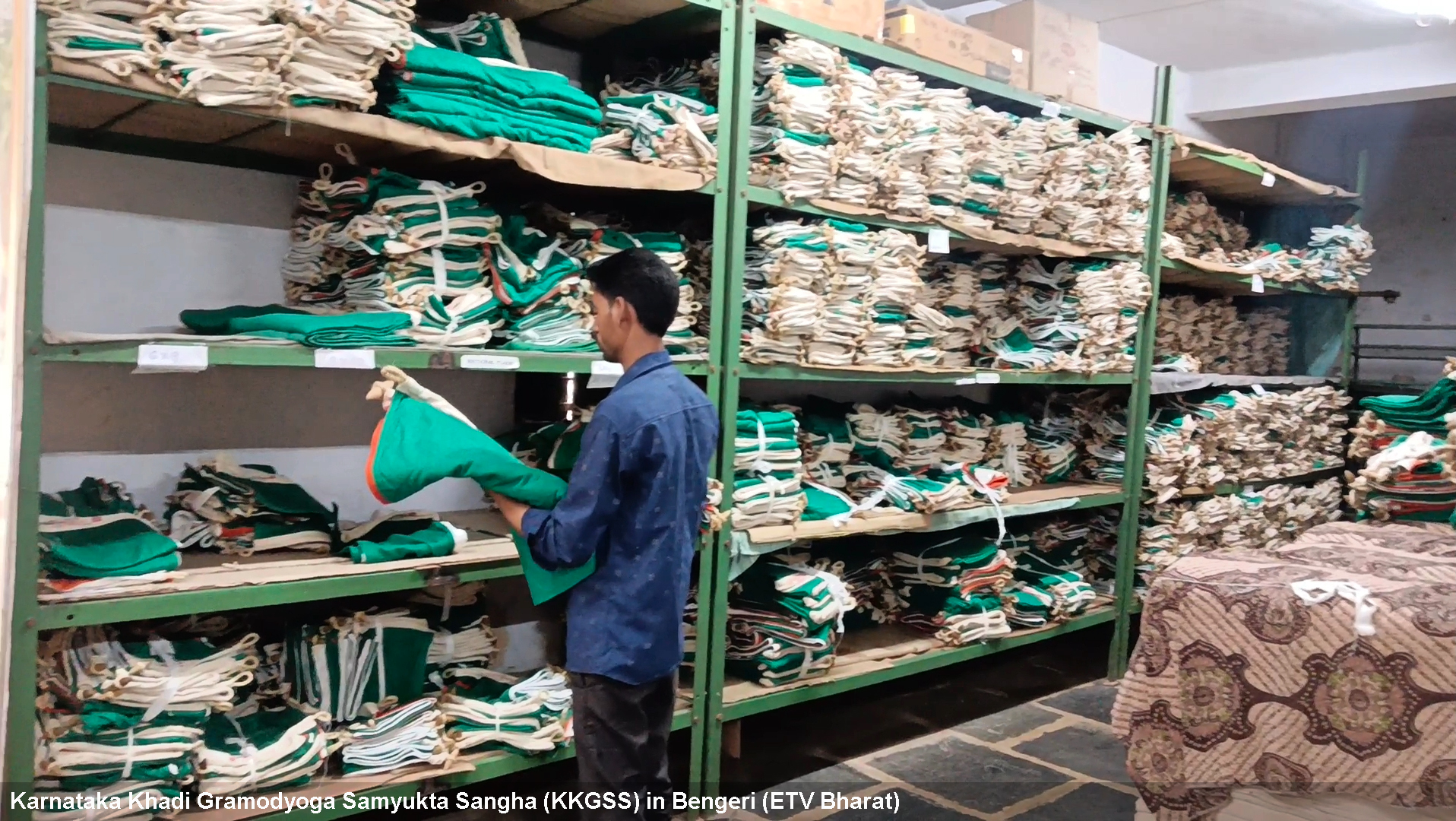
Category: General
Country: India
Region: Asia
The cost of a changing code, Hubballi's Khadi artisans face threat of job loss
By ETV Bharat English Team
Published : August 11, 2025 at 5:26 PM IST
Reading time: 4 minutes
Hubballi: The Karnataka Khadi Gramodyoga Samyukta Sangha (KKGSS) in Bengeri, Hubballi, historically grew as the sole authorized manufacturer and supplier of the Indian national flag.
National flags manufactured at this unit with precision and khadi, have adorned iconic locations like the Red Fort and Indian embassies abroad.
However, the organization, built on Gandhian principles and the development of khadi and cottage industries since its founding on November 7, 1957, is now faced with a crisis of existence.

India's 79th Independence Day is approaching on August 15, 2025, and the customary flag hoisting ceremonies and celebrations present a critical juncture for the Karnataka Khadi Gramodyoga Samyukta Sangha (KKGSS) in Hubballi.
A recent amendment to the National Flag Code, allowing the use of machine-made polyester flags, has severely impacted KKGSS's sales. The demand for the hand-crafted khadi flags has declined significantly, leading to a drastic slump in turnover.
Flag sales dwindled, and their turnover for the current year has reached a mere Rs 49 lakh as of August 6, far below the projected Rs 2 to 3 crore.
The decline in demand from various states raises concerns about the future of this unique organization and the livelihoods of the artisans, predominantly women, involved in the flag-making process.
Background of the Association:

KKGSS was founded on November 7, 1957 by a group of Gandhians for the development of Khadi and other cottage industries in the region. Venkatesh Magadi and Sriranga Kamath were the first president and vice-president, respectively.
About 58 institutions from Karnataka were brought under the auspices of this association and it started functioning with its headquarters in Hubballi. It has manufacturing facilities spread over 17 acres and also a training college for textile students. This unit of KKGSS has about 60 sewing machines to maintain precision while stitching. Each flag conforms to critical standards.
Sales decline
In 2022, as part of the Har Ghar Tiranga campaign, the national flag was sold in record quantities during the Amrit Mahotsav. But the demand for Khadi flags has been declining from 2023-24 and 2024-25 as the central government amended the 'Flag Code-2002' and allowed the sale of polyester tricolour flags.
This year so far, compared to last year, only 25% of the sales have been made. In June and July, there used to be high demands from different states including Jammu and Kashmir, Chhattisgarh, Kolkata, Uttar Pradesh and West Bengal. But this time the demand has fallen sharply.

Shivananda Mathapati, Secretary of Karnataka Khadi Samyukta Sanstha, Bengeri, told ETV Bharat, "Flag sales have decreased significantly. Only 25% have been sold this year. This year, we were supposed to do a turnover of 2 to 3 crores, but till now only Rs 49 lakhs have been sold. This is the figure till August 6. There is little sign of an increase now.”
Mathapati said: "After the national flag was adopted, there was a flag code regarding the manufacture of the national with specific guidelines. It was stated that khadi cloth should be used and government organizations should fly flags made of Arale Khadi, Silk Khadi and Ulan Khadi only.”
Amrita Mahotsav & the National Flag
But in 2022, during the Amrita Mahotsav, the National Flag Code was amended to accommodate machine-made polyester cloth flags to meet the rising demand. Since the polyester flags were relatively low-priced, the demand for khadi flags started to decrease, he said.
"In 2020-21, there was a turnover of one and a half crore due to Covid. It shot up in 2022-23, during the 75th Independence Day, with a turnover of Rs 4.28 crore. Last year, it was sold for up to Rs 1.80 crore. This year, it has completely reduced to Rs 49 lakh," he said.
Declining Business at Hubballi
Shivananda Mathapati said: “There is declining business. Over 2000 women work in the organization. They do spinning, weaving, and making clothes. 80 women work in the national flag-making unit. They have been working since the organization was established in 1957, and now they are in fear of losing their jobs."
"For the last two months, we have not been able to pay salaries. We can only pay salaries if the flag is sold. The central government should modify the code change amendment. The use of mill-made and polyester flags should be withdrawn. We should go back to khadi cloth, silk, ulan, and arale as before,” he demanded.
Annapurna Doddamani, a woman at the flag-making unit, told ETV Bharat, "The amendment to the Flag Code is also causing a lot of problems. We make flags following BIS standards. But now people are allowed to use flags made of polyester fabric. Since they are available at a lower price, the demand for our Khadi flags has decreased.”
“We used to make flags by doing extra work from June to August. Flags of 9 different sizes were prepared and sold. But now the stocks are lying unsold. There is no work. Without sales, the workers are not getting paid," she said.
The prices of Hubballi Khadi flags range from Rs 250 to Rs 30,150, depending on the size. There is a demand for 10 to 12 very large flags (21x14 feet). The 3x2 feet size flags are the most sold. Despite the setback, the upcoming Independence Day celebrations offer a potential opportunity to highlight the significance of the Khadi flag as a symbol of India's freedom struggle and heritage.

Courtesy: etvbharat.com
Copyrights © 2026 GLOBAL TEXTILE SOURCE. All rights reserved.